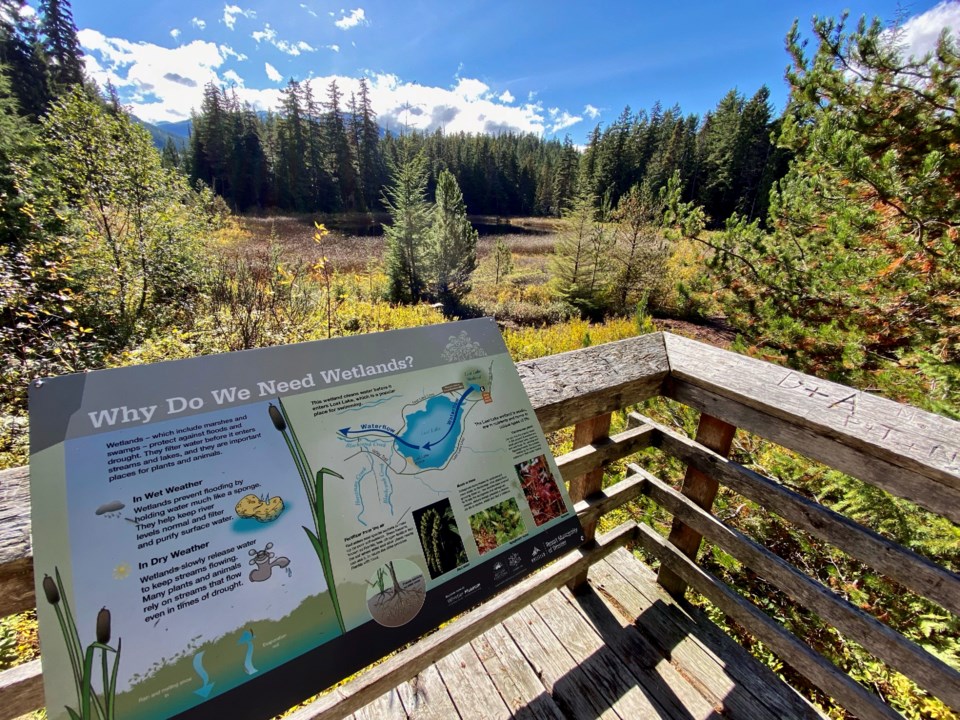When you hear the word wetland, what comes to mind?
Dark, sinister places filled with mosquitos, like the Dead Marshes in The Lord of the Rings or the fire swamp in the Princess Bride? Or are you one of the lucky ones who knows that wetlands are a true treasure, teeming with life?
Wetlands are one of nature’s most valuable ecosystems, filled with cattails and yellow pond lilies, red-wing blackbirds and common yellow warblers, northwestern salamanders and Pacific tree frogs. Offering a peaceful escape from fast-paced urban centres, wetlands are a quiet place to listen to the birds sing and frogs croak while dragonflies flutter by. If you enjoy a scenic paddle with the possibility of spotting busy beavers, wetlands provide the perfect place to spend a few hours exploring in your canoe or kayak.
So, what defines a wetland? Well, they are much more than lands that are wet. Marshes, swamps, bogs, fens, shallow ponds, and estuaries all fit the description. Some are permanently wet, others just seasonally, but they all share three features: The presence of water for at least part of the year; soils modified by the presence of water; and plants that have adapted to these wet, low-oxygen soils.
More than half of the world’s original wetlands have already disappeared, and others are degrading or disappearing three times faster than forests. Like other developed areas in British Columbia, Whistler has lost more than 70 per cent of its wetlands due to land-use changes. Those that remain are surrounded by development, reduced in size, or disconnected from other natural spaces, making it hard for wildlife to safely access them.
In Whistler, wetland and riparian habitats are rare, covering only 2.3 per cent of the municipality, so it’s crucial to understand and protect wetlands that are still intact. From maintaining water flow during flood and droughts, to providing critical habitat for many plants and animals—including two-thirds of the species at risk in B.C.—wetlands offer a multitude of functions that benefit the planet. In their role as “the kidneys of the Earth,” wetlands clean and filter water as it flows through them. Some sequester carbon, while others provide raw materials and food resources such as rice or cranberries. B.C.’s wetlands provide services worth more than $100 billion annually.
If you want to get your boots wet and see some wetlands, the Whistler Naturalists are partnering with the BC Wildlife Federation to bring a Map our Marshes workshop to Whistler on August 19 and 20, where we’ll be visiting and learning about all things wetlands! The BCWF’s Wetlands Education Program works to restore, enhance, and conserve wetlands across the province while creating a community of wetland stewards who can continue this work. If you’re interested in registering for the workshop or learning more about wetlands, please visit the BCWF website at tinyurl.com/bdfw2655 or bcwfbogblog.com.
Naturespeak is prepared by the Whistler Naturalists. To learn more about Whistler’s natural world, go to w.




